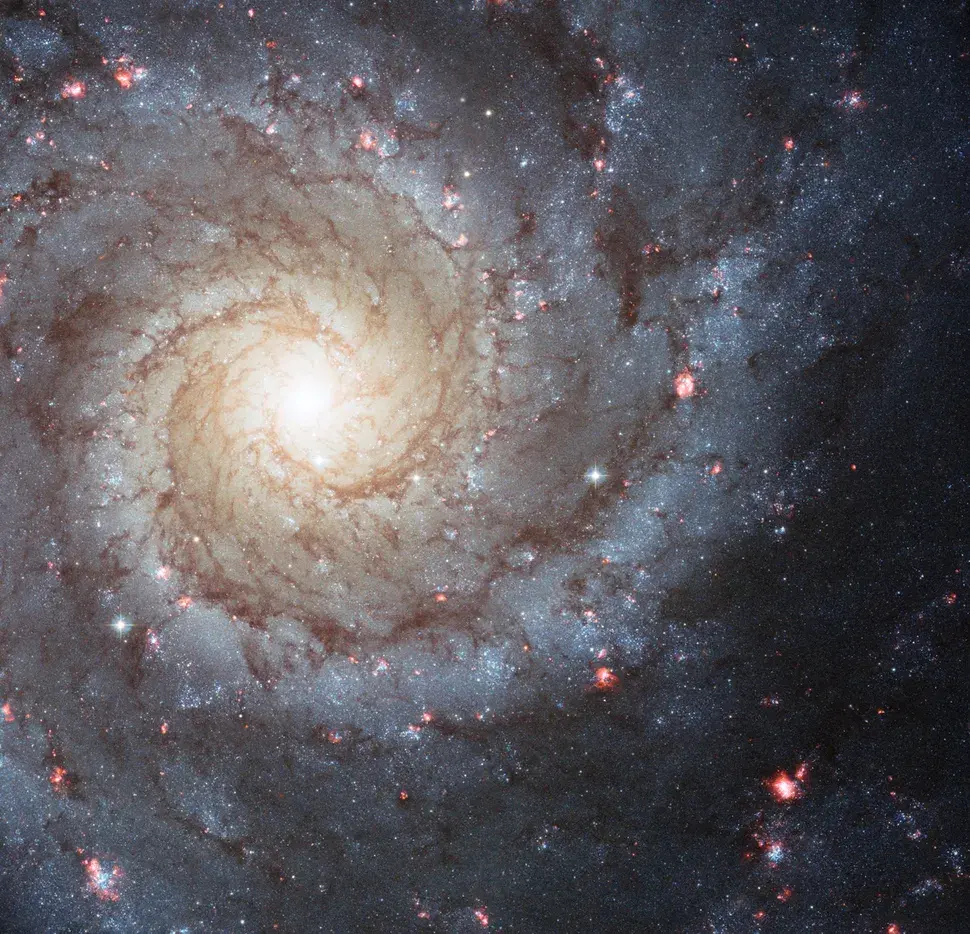Gazing out upon the apparently unchanging sea of stars around us, it's tempting to think of the Milky Way galaxy as static and everything within it as fixed and immutable.
The Radcliffe Wave formation is a bunch of gas that is apparently, wiggling, in incredibly huge time and distance scales, like a sinusoidal wave.
So, imagine very, very long ago, before the Milky Way formed, you have a particular dense gaseous region/formation.
Dense gaseous regions tend to give birth to new stars. This region did so, and then one of them supernova’d.
Next, the Milky Way ended up forming in the void created by this supernova.
Then, this dense gaseous region was basically incorporated into the Milky Way (seems like one of its spiral arms) over another absurdly long period of time.
But, for some reason, it is wiggling, in a manner that dense gaseous regions have not been observed to behave in.
Thats the best I can do here, I am not an astrophysicist, though I did take two quarters of intro level astronomy in college lol.
Probably worthwhile to note that the article says that their data ‘suggests’ not ‘shows’ or ‘proves’ the bit about the supernova clearing the Milky Way void.
To actually prove that would encompass, among many other things, running the clock backward on star orbits/trajectories over billions of years using extremely complicated models and mountains of data I am absolutely not qualified to comment on.
Im just trying to very broadly explain the chain of events here if this supernova really did cause the void the Milky Way formed in.
Anyway, other fun fact: Our Milky Way Galaxy is not actually a pure spiral Galaxy as it has so often been depicted for quite a long time.
It is actually a barred spiral galaxy. Basically, instead of just swirly arms, there are actually short, more or less straight parts to the arms as they emanate out from the center, which then begin to curve into spirally arms.
The Radcliffe Wave formation is a bunch of gas that is apparently, wiggling, in incredibly huge time and distance scales, like a sinusoidal wave.
So, imagine very, very long ago, before the Milky Way formed, you have a particular dense gaseous region/formation.
Dense gaseous regions tend to give birth to new stars. This region did so, and then one of them supernova’d.
Next, the Milky Way ended up forming in the void created by this supernova.
Then, this dense gaseous region was basically incorporated into the Milky Way (seems like one of its spiral arms) over another absurdly long period of time.
But, for some reason, it is wiggling, in a manner that dense gaseous regions have not been observed to behave in.
Thats the best I can do here, I am not an astrophysicist, though I did take two quarters of intro level astronomy in college lol.
Probably worthwhile to note that the article says that their data ‘suggests’ not ‘shows’ or ‘proves’ the bit about the supernova clearing the Milky Way void.
To actually prove that would encompass, among many other things, running the clock backward on star orbits/trajectories over billions of years using extremely complicated models and mountains of data I am absolutely not qualified to comment on.
Im just trying to very broadly explain the chain of events here if this supernova really did cause the void the Milky Way formed in.
Anyway, other fun fact: Our Milky Way Galaxy is not actually a pure spiral Galaxy as it has so often been depicted for quite a long time.
It is actually a barred spiral galaxy. Basically, instead of just swirly arms, there are actually short, more or less straight parts to the arms as they emanate out from the center, which then begin to curve into spirally arms.
Basically, Milky Way looks less like this:
And more like this: